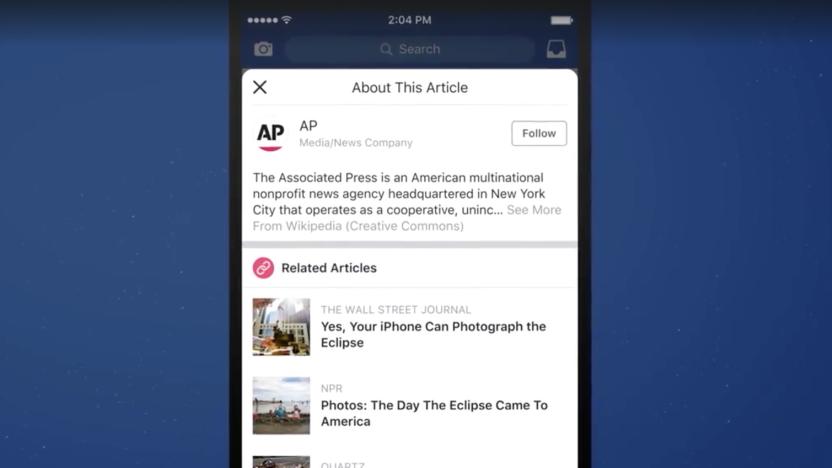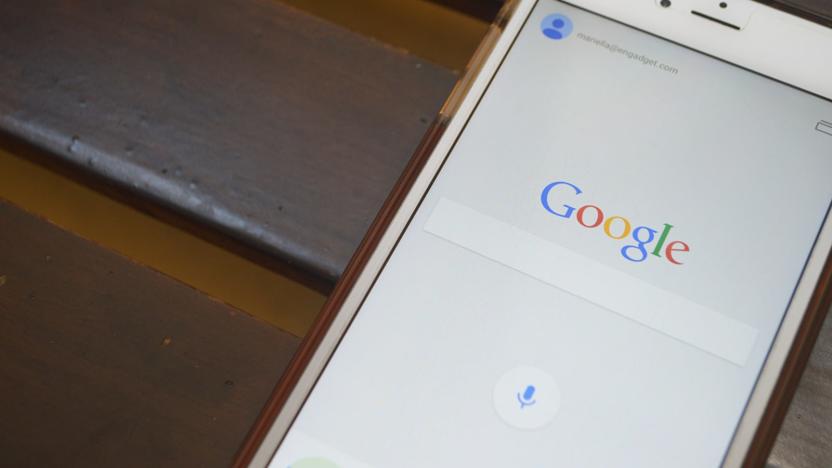relatedarticles
Latest

Facebook tests a feature that provides info on article publishers
Facebook is still working out how to reduce the reach of fake news and misinformation on its site and today, it starts testing a new feature that sounds like it might be pretty useful. When an article link is shared in someone's News Feed, there will now be a small "i" button that will bring up additional information about the publisher and article when clicked. It will include information from the publisher's Wikipedia page, a link to follow its Facebook Page, Trending and Related articles about the same topic and a graphic on where and how the article is being shared across Facebook. When any of that information isn't available, Facebook will say that explicitly. That in itself is pretty useful. For example, if there's no Wikipedia page for the publisher of the piece, it could mean it's not a reputable outlet.

Google wants to ensnare readers in its iOS search app
If you want to dive deeply into a particular topic, consider using Google's app for iOS instead of your other browsers. The big G has made it much quicker to find and explore articles and other content related to what you're looking at by adding suggestions at the bottom of page. Say, you're reading one of our CRISPR or Cassini posts: when you're done and scroll back up, a panel will pop up from the bottom with cards that link to related pieces marked "People Also View." The cards could lead to Wikipedia articles about the genome-editing technique or the Saturn probe, they could link to NASA pages, scientific studies -- anything related to the topic, really.

Facebook's related articles will add fact to fake news shares
Facebook's related articles section can now help you determine whether a story that's being shared on the website is nothing but a hoax. After hearing from users about how related articles give them more perspectives and additional info, the social network has decided to use it to help people figure out which stories are real or fake. Going forward, the company will be using an updated algorithm that can pinpoint potential fake news based on users' comments and reports. It will then send those stories to third-party fact checkers.

